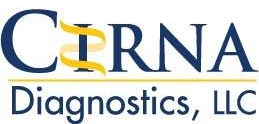Detecting circulating mRNA for use in non-invasive assays for liver cirrhosis, liver cancer and other diseases
mRNA as an analyte in the blood is a new family of biomarkers
Cirna Diagnostics LLC
is dedicated to developing non-invasive methods for the early detection of disease, using a plat form technique to extract messenger RNA from the blood, and assay for disease specific mRNAs.
For many cancers, early detection is the best way to improve patient outcome. For hepatocellular carcinoma (HCC) this is especially true and non-invasive biomarkers that detect HCC, or allow for risk stratification, are solely needed.
Cirna Diagnostics is working with The Baruch S. Blumberg Institute
to develop such methods. The assay is based on quantification of 17 different, specific, mRNAs in the blood.

Advantages of the Cirna method:
mRNA as a non-invasively recoverable analyte for early detection of cancer has many advantages over current methods.
• These are proteins associated with HCC, but are not secreted, and hence not found in the circulation.
• Elevation of specific mRNA may be used to guide therapy.
• mRNA is amplifiable by PCR making it possible to detect the presence of polypeptides in low abundance (by detecting its mRNA, not DNA, which is only present in a single copy per cell and possibly outperforming ELISA).
